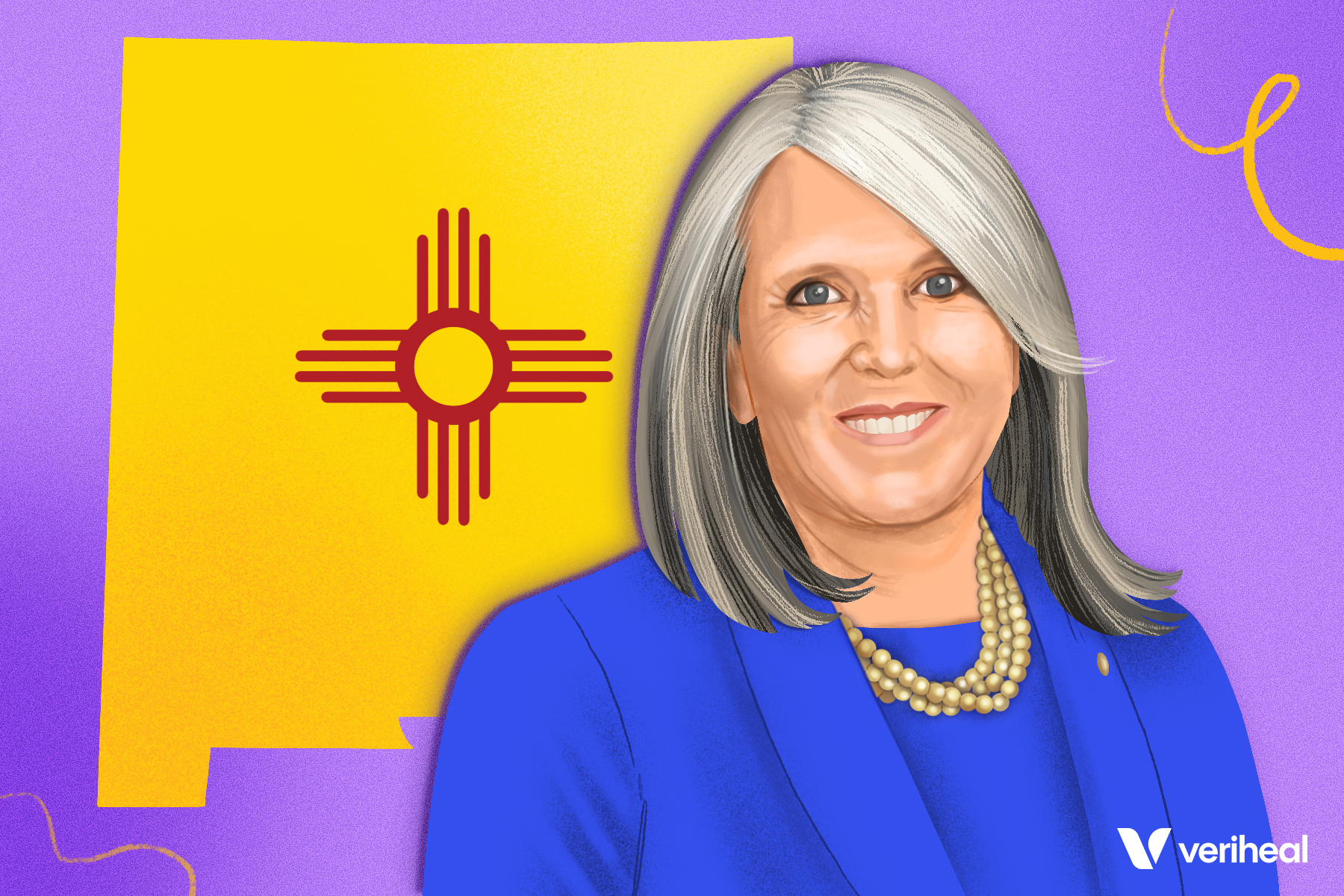On April 7, New Mexico Gov. Michelle Lujan Grisham assented to 211 bills, vetoing 13, including Senate Bill 84 and Senate Bill 187, which collectively lobbied against incarceration for minor drug-related offenses and technical violations.
The executive veto has received strong criticism from many individuals and organizations. In the words of Emily Kaltenbach, the vetoed bill might have been informed by a “regressive perspective.”
The Vetoed Bills and Implications
For decades, New Mexico has been a frontline proponent against incarceration for victims of substance use disorders. The state has led campaigns for fiscally responsible reform policies, particularly on drug use.
In the most recent development, Gov. Michelle Lujan Grishman (D) vetoed two sentencing reform bills critically screened by the lawmakers: The Probation and Parole Reform (SB 84) and Certain Drug Possession and Habitual Offenders (SB 187), collectively aimed to abolish extended incarceration of New Mexicans for simple drug possession and related minor offenses.
SB 84 sought to review additional prison time for “technical violations” such as failed drug tests or missed appointments during parole or probation. SB 187 aimed to strike out enhanced sentencing of felons for simple drug possession.
If signed into law, one caught with a small amount of drugs may still serve up to 18 months of prison time, but an additional mandatory eight years enhancement for repeated offenses would no longer apply. Lawmakers say this could save millions of taxpayer money on court proceedings and jail terms that could be better spent on harm reduction and rehabilitation.
Probation and parole offenses account for a considerable percentage of total incarceration in New Mexico. According to the 2022 Legislative Finance Committee Corrections Department Performance Report Card, about 35% of detentions in the state’s corrections department were for technical parole offenses. Even more, offenders stayed, on average, 415 days in custody, according to SB 84’s Fiscal Impact Report.
Similarly, SB 84 addressed punishment for minor violations, such as missed appointments with a supervisor or failed drug tests. SB 84 sought to remove sentencing enhancements when offenders commit a new offense or exhibit certain drug-associated behaviors.
Arguments Against the Veto
Expectedly, mixed reactions have trailed the governor’s veto, with most individuals and groups expressing utmost disappointment in what many called an “anti-people decision.”
Why You Should Get Your Medical Marijuana Card
Veriheal has satisfied millions of patients nationwide by giving them access to these benefits
- Larger purchase limits
- Peace of mind
- Enhanced legal protection
- Access to higher potency strains
- Save up to 25% on cannabis purchases
- Skip the line at the dispensary
Among the aggrieved parties is Drug Policy Alliance, a strong voice against America’s drug war. According to the group’s senior director of criminal legal and policing reforms, Emily Kaltenbach, “These pieces of legislation (SBs 84 and 187) were a first step in treating addiction as a health issue and not a criminal issue.” She expressed concerns about the negative impact of the unassented bills on the state’s progress in the campaign against incarceration as a remedy to drug use. “I question why we have such a regressive perspective in this state when we’ve done many great things,” she said.
Also criticizing the executive veto of the proposed reforms, Nayomi Valdez, director of public policy for ACLU-NM, said, “We are deeply disappointed.” He expressed confidence that the bill would have helped people “get their lives back on track” and reduce “senseless incarceration for minor technical violations and failed drug test.”
Gov. Grisham’s Defense
In her veto message, Grisham mentioned that she “fully supports the intent” behind the bill to help people seek intervention rather than lock them up in cells. However, she expressed concern that the bill, if passed, would “produce the opposite of the intended effect.” She feared the court would, thenceforth, lack powers to compel offenders to rehab, arguing that the threat of incarceration, or an actual jail term, encourages those with substance use disorders to seek treatment.
Defending the veto, Quentin Ray, 9th Judicial District Attorney, and state prosecutors argued that incarceration offers the court the right to “push people” to seek treatment and change their ways; otherwise, “we take you out of society.”
Lujan Grishman and state prosecutors maintain that the bill, intended to bar the courts from extending prison terms amidst existing punishments, may discourage defendants from seeking treatment, thereby inflating drug-related concerns in the state.
Did She Really Mess Up?
Despite the resounding support of the majority of New Mexicans for these much-needed sentencing reforms and the unwavering dedication of the Senate in overcoming various legislative hurdles, the governor’s disapproval has ruined high expectations. While there are valid arguments for and against the bill, supporters’ arguments outweigh opposers’.
Several data and analyses expose the failure of incarceration as punishment for minor non-criminal offenses like failed drug tests and technical violations. Spending many months in prison for drug possession and related violations makes neither society nor the offender better.
Ideally, people grappling with the effect of substance use disorder should be given treatment and assistance, not jailed. Nayomi Valdez, Director of Public Policy, ACLU-NM says it clearer: “Needlessly incarcerating people only harms them and their families and fails to make any of us safer.”
New Mexico will be better off if the millions of dollars spent on legal proceedings and the welfare of those incarcerated for these harmless violations are channeled toward managing their health conditions and reintegrating them into society—a well-intended legislative attempt messed up by the governor’s veto.
Author, Share & Comments
















